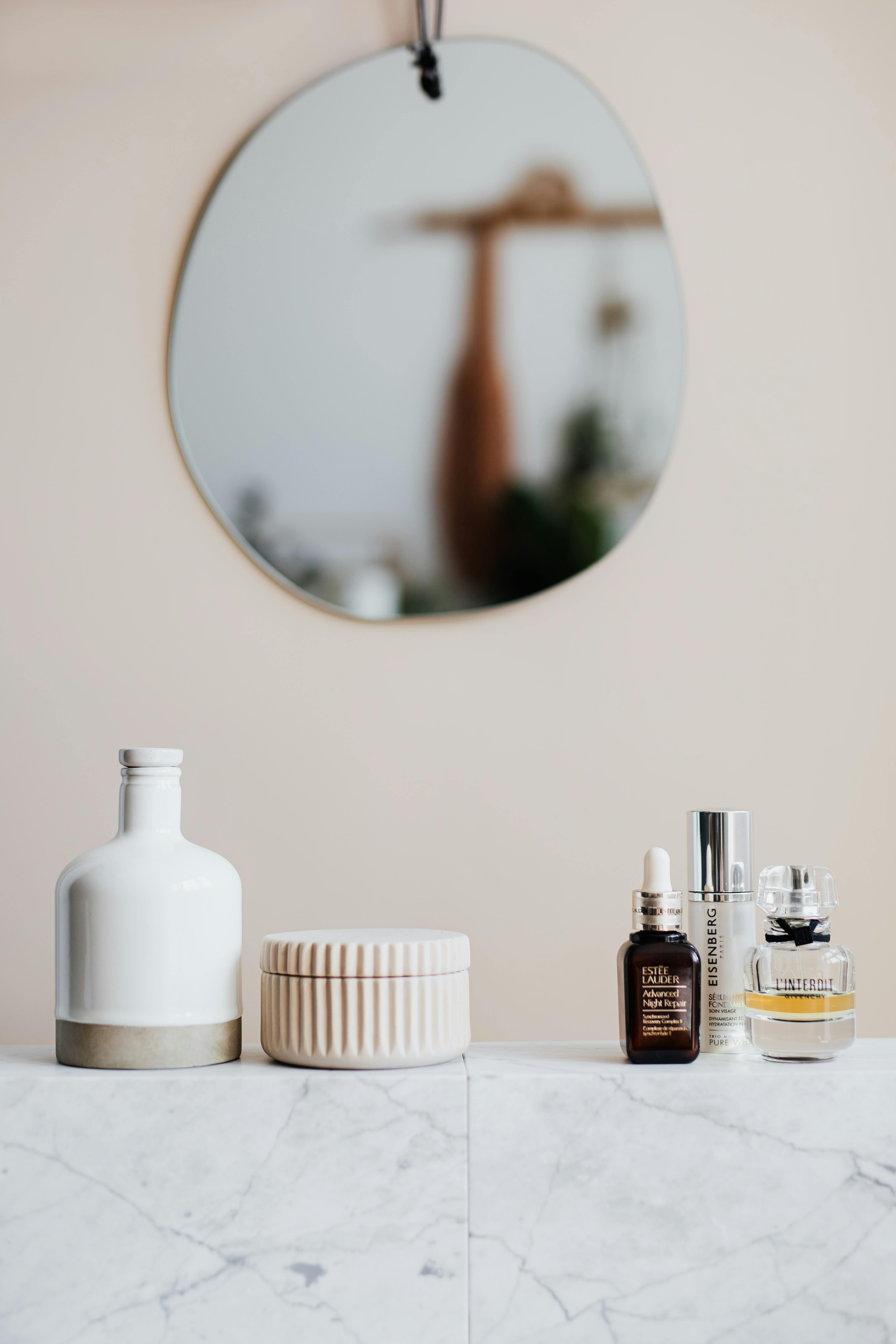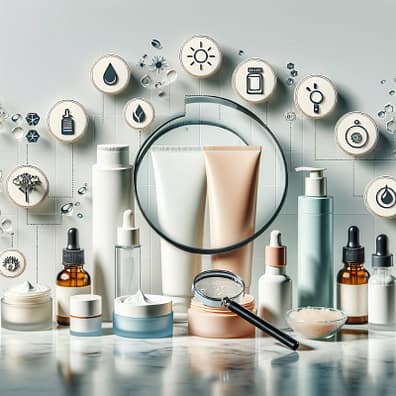Discovering How to choose skincare products can sometimes feel like an overwhelming task. With countless options available, it’s easy to get lost in the shelves of beauty stores or lost in the sea of online reviews. But fear not! This article will guide you through the process of How to choose skincare products, ensuring that your daily regimen leaves your skin looking and feeling its absolute best.
With helpful tips, expert advice, and a breakdown of essential ingredients, you’ll have all the information you need to make informed decisions about your skincare routine. So get ready to embark on a journey of self-care and radiant skin!
Determining Your Skin Type
Understanding Different Skin Types
Before choosing the right skincare products for your skin, it’s essential to understand your skin type. There are generally five main skin types: normal, dry, oily, combination, and sensitive. Normal skin is well-balanced, not too dry or oily, with minimal imperfections. Dry skin lacks moisture, often feels tight, and may appear flaky or dull. Oily skin tends to produce excess sebum, leading to shine, enlarged pores, and a higher likelihood of acne breakouts. Combination skin is a mix of both oily and dry areas, with oilier zones typically located in the T-zone (forehead, nose, and chin). Lastly, sensitive skin is easily irritated, prone to redness, and may react negatively to certain ingredients or environmental factors.
Identifying Your Own Skin Type
To determine your skin type, start by washing your face with a gentle cleanser and patting it dry. Avoid applying any skincare products for at least an hour. Afterward, observe your skin’s behavior. If it feels comfortable, without any excessive dryness or oiliness, and does not exhibit any significant issues, you likely have a normal skin type. If your skin feels tight, rough, and lacks moisture, you may have dry skin.
On the other hand, if your face becomes shiny and greasy throughout the day, especially in the T-zone, you likely have oily skin. Combination skin is characterized by oiliness in the T-zone and dryness on the cheeks and other areas. Lastly, if your skin often reacts to new products or environmental factors, such as changes in weather or certain cosmetics, you may have sensitive skin. Keep in mind that skin type characteristics may vary and change over time, so it’s important to regularly reassess your skin’s needs.
Identifying Your Skincare Needs
Common Skincare Concerns
Once you have identified your skin type, it’s time to address your specific skincare products. Skincare concerns can include issues such as acne, dryness, sensitivity, hyperpigmentation, wrinkles, and uneven skin tone. Understanding your skin’s unique needs will help you choose the right products to target these concerns effectively.
Targeting Specific Skin Issues
To effectively target your specific skincare products, it’s important to identify the underlying causes of How to choose skincare products. For example, if you experience acne breakouts, you may want to look for products that contain salicylic acid or benzoyl peroxide to help clear and prevent blemishes. Dry skin can benefit from moisturizers containing ingredients like hyaluronic acid or ceramides to hydrate and repair the skin barrier. For hyperpigmentation or uneven skin tone, products with ingredients like vitamin C or niacinamide can help brighten and even out the complexion. By understanding the root causes of your skin concerns, you can select products that best address them.
Reading Product Labels
Understanding Ingredient Lists
Reading product labels can be overwhelming, but understanding the ingredient list is crucial in selecting the right skincare products. Ingredients are listed in descending order of concentration, with the most abundant ingredients listed first. Familiarize yourself with common skincare ingredients and their benefits to make more informed choices. Keep in mind that simpler ingredient lists with recognizable, beneficial ingredients are often preferable to those with a long list of unrecognizable chemicals.
Identifying Potential Irritants
It’s also important to identify potential irritants that may cause adverse reactions or allergies. Look out for common allergens and irritants, such as fragrances, dyes, sulfates, and certain preservatives like parabens. If you have sensitive skin, it’s wise to opt for fragrance-free and hypoallergenic products to minimize the risk of irritation. Patch testing new products on a small area of skin before full application can help you determine if any ingredients cause negative reactions.
Researching Brands and Products
Looking for Trusted Brands
To ensure the quality and effectiveness of your skincare products, it’s essential to research and know How to choose skincare products. Look for reputable companies with a proven track record of producing safe and reliable skincare products. Consider factors such as their transparency, adherence to industry regulations, use of high-quality ingredients, and positive customer reviews. Reputable brands often invest in research and development, providing you with products that have undergone rigorous testing and are backed by scientific evidence.
Reading Product Reviews
Reading product reviews can offer valuable insight into the experiences of other consumers. Take the time to read reviews from a variety of sources, such as reputable beauty bloggers, skincare products, and verified customers. Pay attention to reviews from individuals with similar skin types and concerns, as their experiences may align more closely with your own. Keep in mind that everyone’s skin is unique, so while reviews can offer helpful guidance, it’s important to determine what works best for your specific needs.

This image is property of images.pexels.com.
Considering Your Budget
Setting a Skincare Budget
When it comes to skincare products, it’s important to consider your budget and know How to choose skincare products. Skincare products can vary widely in cost, from affordable drugstore options to higher-end luxury brands. Determine the maximum amount you’re comfortable spending on skincare products and prioritize products that align with your needs and budget. Remember that expensive doesn’t always equate to superior quality, and affordable options can often provide excellent results as well.
Finding Affordable Options
If you’re working with a limited budget, there are several ways to find affordable skincare options without compromising on quality. Look for drugstore brands that offer effective yet affordable products. Many drugstore brands have expanded their ranges to include a variety of options catering to different skin types and concerns. Additionally, keep an eye out for sales, promotions, and discounts to score great deals on skincare products. Another budget-friendly option is exploring online marketplaces that offer a wide range of affordable skincare products.
Consulting with a Dermatologist
The Importance of Professional Advice
While it’s possible to create a skincare routine on your own, consulting with a dermatologist can provide valuable insight and guidance. Dermatologists are medical professionals specialized in diagnosing and treating skin conditions. They can help evaluate your unique skin concerns, recommend suitable products, and tailor a personalized skincare routine based on your needs. Dermatologists are equipped with in-depth knowledge of skincare ingredients and can address any specific concerns or conditions you may have.
When to Seek Dermatological Input
Consider seeking dermatological input if you have persistent or severe skin concerns that over-the-counter products have been unable to resolve. Dermatologists can help diagnose underlying skin conditions like eczema, rosacea, or psoriasis and prescribe appropriate medications or treatments. They can also offer advice on skincare routines and provide insights into the specific needs of your skin. If you’re unsure about certain products or have experienced adverse reactions in the past, a dermatologist can help identify potential triggers and recommend alternative options.
Testing and Patching
Importance of Patch Testing
Patch testing is a crucial step before incorporating new skincare products into your routine, especially if you have sensitive or reactive skin. Patch testing involves applying a small amount of the product to a discreet area of skin, such as the inner forearm or behind the ear, and monitoring for any adverse reactions over 24-48 hours. This practice allows you to identify potential irritants or allergies before applying the product to your face. Patch testing can help prevent unwanted reactions, such as redness, itching, or swelling, and ensure the suitability of the product for your skin.
Trial Sizes and Samples
To minimize the risk of investing in full-sized products that may not work for your skin, consider trying trial sizes or requesting samples from brands. Many skincare brands offer trial-sized versions of their products or provide samples upon request. This allows you to test the product’s compatibility with your skin, assess its effectiveness, and ensure it meets your skincare needs before committing to a full-sized purchase. Sampling products can save you time and money by narrowing down the options that work best for your skin type and concerns.
Also Check: How To Get Soft Lips Best Tips?
Understanding Product Claims
Differentiating between Fact and Hype
When exploring skincare products, it’s essential to be discerning and differentiate between factual claims and marketing hype. Skincare products often make various claims, such as “reduces fine lines and wrinkles,” “brightens skin,” or “minimizes pore size.” While these claims may be enticing, it’s important to back them up with scientific evidence. Look for products backed by clinical studies, dermatologist recommendations, or certifications from reputable organizations. Be wary of exaggerated claims that sound too good to be true and rely on products with transparent and evidence-based claims.
Recognizing Misleading Marketing
In the skincare industry, misleading marketing tactics can be prevalent. Brands may use buzzwords or trendy ingredients to attract consumers without providing reliable results. Be cautious of exaggerated promises, limited-time offers, or claims that seem unrealistic. Take the time to research ingredients and product formulations independently to ensure they align with your skincare needs. Remember that not every ingredient or product will work for everyone, and what works for one person may not necessarily work for you.

Source: TheTechBrain AI
The Role of Personal Preferences
Fragrance and Texture Preferences
Personal preferences play a significant role in skincare choices, particularly when it comes to fragrance and texture preferences. So always must learn first How to choose skincare products. Some individuals may prefer products with a particular scent, while others prefer fragrance-free options. Likewise, the texture of skincare products can vary, from lightweight gels and serums to rich creams and oils. Experimenting with different textures and scents can enhance your skincare experience and make it more enjoyable. Remember to prioritize effectiveness and product benefits over personal preferences, ensuring that the product addresses your specific skincare needs.
Eco-Friendly and Cruelty-Free Options
For those concerned about the environmental impact and animal welfare, eco-friendly and cruelty-free options are available in the skincare market. Many brands now offer sustainable packaging, using recyclable materials and reducing excess waste. Additionally, cruelty-free brands ensure their products are not tested on animals. Look for certifications such as Leaping Bunny or PETA’s cruelty-free logo to identify brands committed to these values. By choosing eco-friendly and cruelty-free options, you can support ethical practices and contribute to a more sustainable skincare industry.
Conclusion
Prioritizing your skin’s health by choosing the right skincare products is essential for maintaining a glowing and healthy complexion. Understanding your skin type and specific concerns is the first step in creating an effective skincare routine.
Take the time to read product labels, research ingredients, and identify potential irritants. Consider your budget and explore affordable options without compromising on quality. If needed, consult with a dermatologist for personalized advice and professional input. Patch test new products and explore trial sizes and samples to ensure compatibility with your skin.
Differentiate between factual claims and marketing hype, always prioritizing evidence-based products. Lastly, remember to consider personal preferences, such as fragrance and texture, and opt for eco-friendly and cruelty-free options if those values align with your beliefs. By embracing a skincare routine tailored to your needs, you can achieve healthy, radiant skin that you’ll love.





